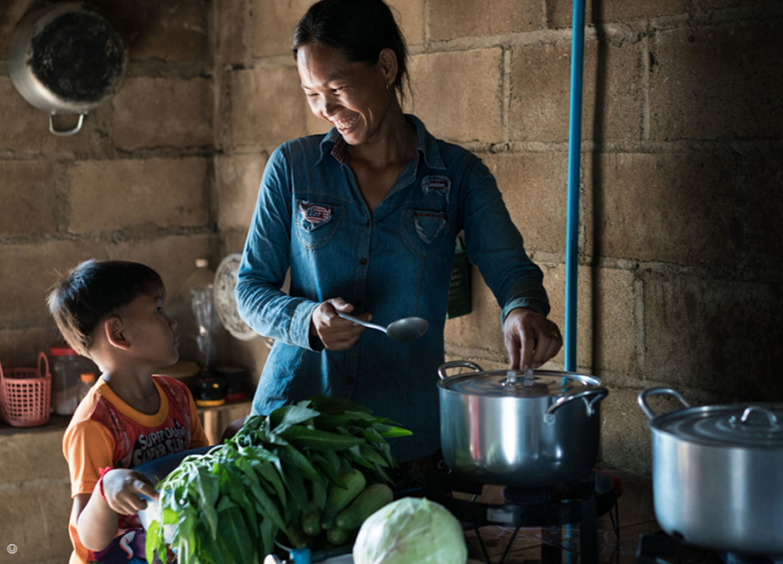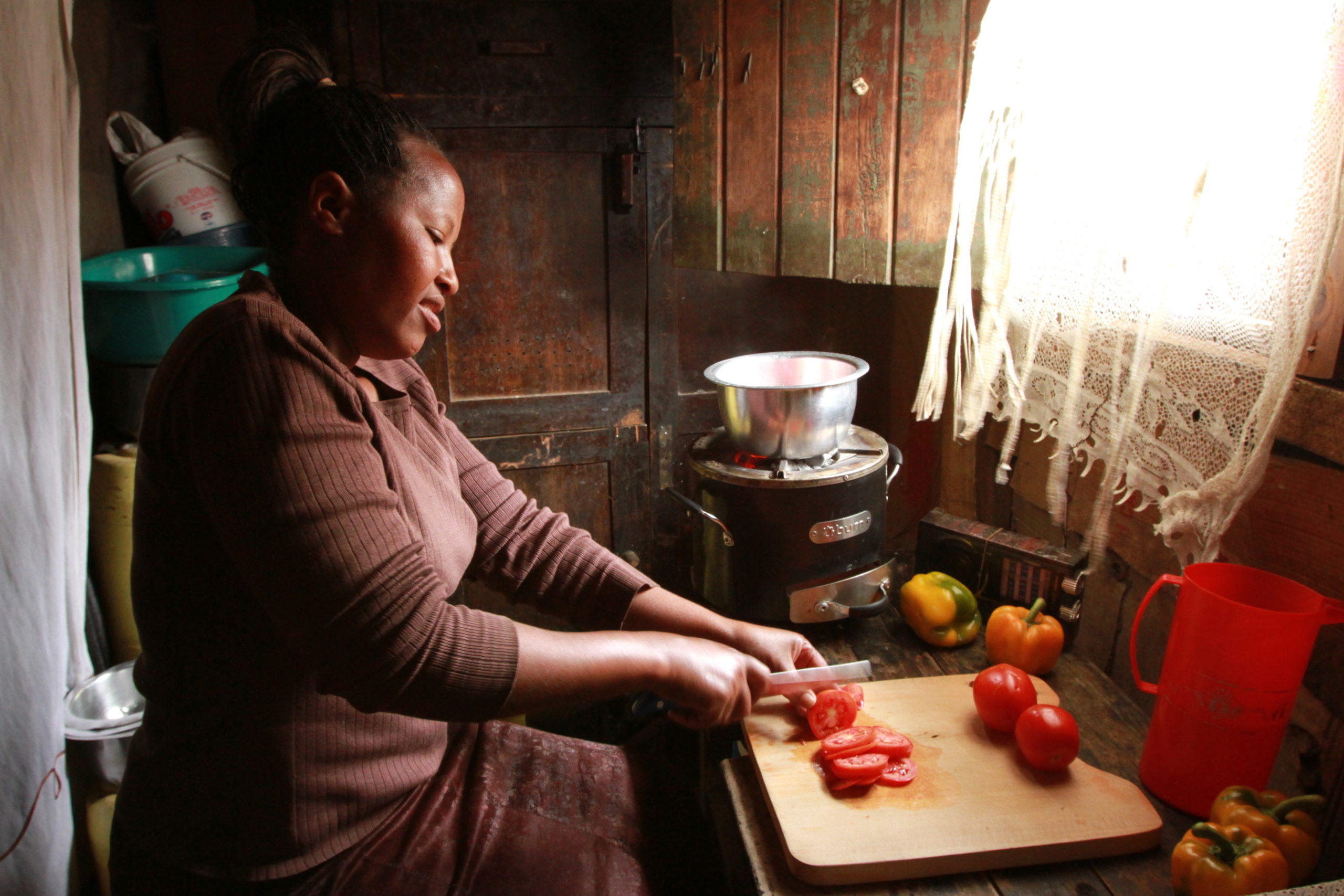Clean Cooking Can Empower Women: A New Financial Tool Could Help Determine What That’s Worth

Carbon finance has been increasingly used to monetize the climate benefits of clean cooking interventions1. But why stop there when clean cooking provides so many other social goods? In particular, providing women access to modern energy is a critical but often overlooked means of empowering women and advancing gender equality.
That’s why CCA has partnered with Duke University and C-Quest Capital to develop a framework for a new results-based finance (RBF) instrument. The new emPOWERment bond will produce actionable guidance to quantify, verify, and monetize gendered time-use and productivity benefits of improved biomass cookstove initiatives in sub-Saharan Africa, while also contributing to the broader goal of an inclusive energy transition.
Women and girls, who often spend hours cooking and collecting fuels, are disproportionately affected by the use of polluting, open fires or inefficient stoves for cooking. The concept behind the emPOWERment bond is similar to that which rewards carbon credits generated by clean cooking programs. However, clean cooking programs subsidized by carbon credit sales are narrowly defined and funded solely based on climate impacts, which largely ignores the gendered and substantial livelihood and health benefits of clean cooking.

The emPOWERment bond framework takes into consideration the gendered time-use and productivity benefits of clean cooking adoption and sustained use. With clean cooking technologies, a woman could reduce or eliminate her exposure to household air pollution; cut down on cooking time; eliminate or reduce the number of trips she makes to fetch firewood; and reallocate the time saved to engage in productive economic activities, pursue educational opportunities, or simply rest.
Leveraging this framework, funders interested in advancing gender equity and energy access could commit resources, contingent upon achieving impact results, to investors who in turn provide finance to programs promoting improved biomass stoves. This funding would decrease the cost of implementation and enhance the affordability of clean cooking solutions to rural consumers. With greater affordability and scale, more households would adopt these solutions, and women would save more time. Moreover, these newly empowered women, especially those able to capitalize time savings into income gains and greater agency, could increase demand for higher tier solutions. With increased buying power, women and their families can move up the energy ladder.
“We are excited by the potential of this partnership to advance understanding of the time savings and empowerment benefits of improved cooking interventions, which are often discussed based on anecdotes or using ad-hoc measures of impact, but deserve the same level of rigorous attention as observed in methods deployed to understand health and climate implications,” says Marc Jeuland, Associate Professor of Public Policy and Global Health at Duke University, and one of the principal investigators of the project. “Existing cost-benefit analysis frameworks already emphasize the relative importance of time savings, but standard forms of data and evidence are sorely lacking.”
The project will leverage Duke University’s extensive experience with quantitative and qualitative economic evaluation methods to quantity and monetize gendered time-savings and productivity benefits of improved biomass stove interventions in Kenya, Malawi, Tanzania and Zambia. To implement the study, Duke is partnering with C-Quest Capital, whose team has experience disseminating improved biomass stoves in these countries at-scale with carbon finance, and is providing co-funding for the research. The findings will be incorporated into actionable guidance for standard organizations, like Gold Standard, who are interested in creating methodologies and standards for verifying the benefits of new financial flows that support the emPOWERment concept.
The emPOWERment bond offers a pivotal market-based solution to scale clean cooking access that won’t leave the rural poor behind. By reducing the upfront cost of improved biomass stoves and affordably delivering gendered time savings and productivity benefits, this new RBF instrument will help rural households move up the energy ladder, one step closer to the cleanest solutions.
1 Carbon funding is mechanism that puts a monetary amount on carbon emissions, allowing companies wishing to offset their greenhouse gas emissions to buy carbon credits generated by sustainable organizations and their projects.
